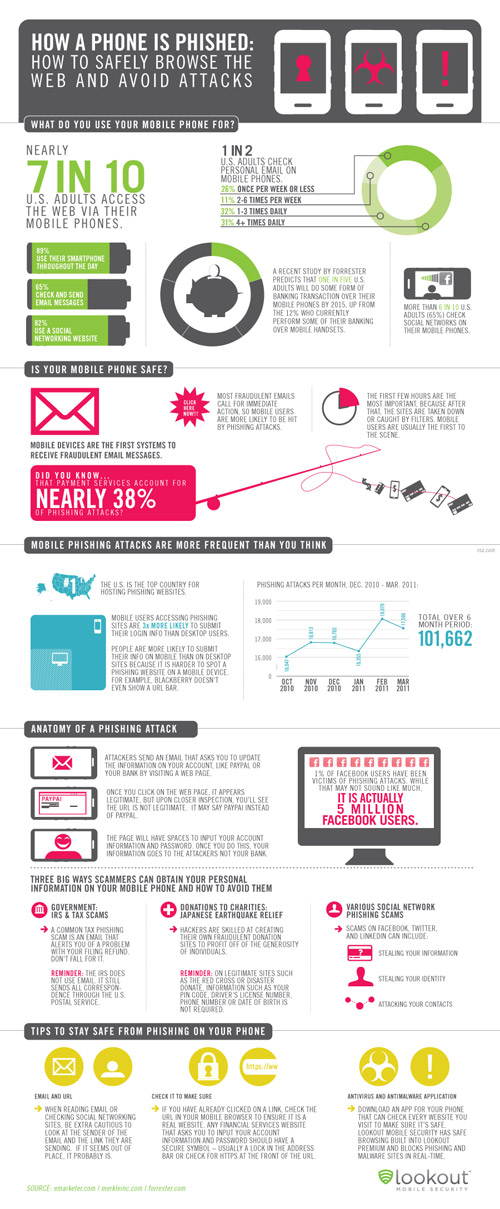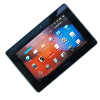Spillikins #126. Do mobile devices need memory cards?
The last week was so rich for events that chilling out on a beach with my laptop I was wondering why all these people sweat their guts out to come up with new services or offer something new to the market. C'mon, it's summer after all and everyone needs to wind down a bit. The main event of the week was, of course, the launch of the new social network Google+. This news deserves a separate article which I am going to release together with the Spillikins. Here in the Spillikins I am going to briefly review some events of lesser importance but very interesting nonetheless.
Contents:
- Imaginary Needs: Memory Cards
- Apple iPhone 5 and Accessible iPhone
- RIM: Gathering Gloom
- What Will Happen to Vertu: Nokia Plans
Imaginary Needs: Memory Cards
Life always suggests ne subjects for the Spillikins and one conversation gave me an idea to discuss whether we need memory cards in phones and tablets. But at first, let me give you the gist of the argument one of my friends had with a geek who was saying that he would never buy an Apple iPad because it does not have a memory card slot. However, the geek could not answer why he needed a memory card since there is an inbuilt storage Ц he said he needed a removable storage. Unfortunately, memory cards have long ago turned from a necessity into a marketing trick Ц many phone users never take the memory card out. Then why do we need memory cards?
I am going to be Captain Obvious for a while: we need memory cards to store data like images, files, videos etc. The more storage you have the less frequently you will have to clean up space and remove redundant apps, files and all kinds of data garbage. Apparently, memory cards can be of great use but do we really need them if we already have a considerable inbuilt storage? This is not an idle question and it needs some investigation.
The Apple products have only inbuilt storage and users can only choose the amount of storage space: as a rule the company offers 16, 32 and 64GB for tablets and phones (and the 8GB variant for the older version of the phone). I have never received a single complaint from Apple iPhone users about not having enough storage and a crucial need for a memory card slot. I am in touch with a lot of people, I receive hundreds of messages a day and I have never heard an Apple user to complain about insufficient storage space Ц not ever.
Recently the European department of the IDC research group has conducted a poll of iPad users and asked them what they need in the iPad. The participants had to choose from the answers the poll offered them and almost 40% said that they would like to have memory card slots in their iPads.
It appears I am wrong. Then why no one complains about lack of memory card slots but many would like to have them? The answer lies far from actual consumer needs Ц it is an issue of consumer expectations. if there is a technology on the market (and memory cards are a consumer technology) then consumers want it regardless of their actual needs. I think if IDC didn't offer ready answers we would see a different pattern. I am sure few would even think about memory cards.
But it ridiculous to assess the market needs on Apple products only. We should take into consideration phones that have both inbuilt storage and a memory card slot. A number of manufacturers have researched this issue and I happen to have the results of the market study for Samsung Galaxy S (it has a memory card slot and 8/16GB of inbuilt storage) Ц it turns out that 99.3% of the users of this phone never used memory cards. Naturally, the number differs from country to country but for all markets it is over 99%. I think that products with both inbuilt storage and a memory card slot are the best proof of the imaginary need.
Let's consider how users buy memory cards: usually when you buy a new phone you will be offered to purchase some accessories including a memory card. If your phone has little or no inbuilt storage you will be offered a b=memory card with lots of storage, fortunately, today memory cards are cheap and a 32GB memory card will satisfy most users. Most users buy memory cards together with their phones and forget about it. So there is no difference between a memory card and inbuilt storage for them Ц and that is exactly what most users do.
I think at this point some readers are already outraged and think that everything said above is complete rubbish and they know why they need memory cards and that they are crucial for users. I beg to differ: sometimes memory cards are convenient for a quick transfer of files to a PC (via a card reader) but most people will just connect the phone to their PCs via a cable. Sometimes we need memory cards to copy a large file to a friend's phone and when a Bluetooth transmission will take forever (Wi-Fi Direct will soon solve the problem of the slow Bluetooth 2.x). Some people have several memory cards and always carry them around but I think only geeky teenagers would do that and anyway it is a very rare scenario.
The main reason memory cards are still popular is that manufacturers are trying to cut down the production costs.
When a manufacturer sells a phone without inbuilt storage it adds a memory card slot so you can choose a memory card as big as you want or just use the memory card from your old phone. It saves you and the manufacturer some cash and I think it is the only reasonable explanation for continuing the use of memory cards. The best example of such an approach is, I think, Samsung. The company does not bundle most of their phones with memory cards Ц they just don't consider them to be a market advantage. And why bother bundling a low-range phone with a 2GB memory card if 25% of buyers will immediately replace it with a bigger one? So bundling of memory cards is pointless while the memory card slot is compulsory in this case.
At this point we must divide the market into two large groups: low and mid-range phones on the one hand and the expensive phones. Apparently these two segments play by different rules: there is no need for memory cards in top products unless it is used for marketing. But simpler phones do need memory cards because manufacturers do not give the users enough of inbuilt storage.
I find it funny when people judge phones based on the criterion whether they have or have not memory card slots. This point is completely irrelevant for expensive phones though a memory card slot wouldn't hurt. Bu if it's not there it wouldn't affect the user in any way Ц statistics show that less than one per cent of users actively use memory cards. So next time you will be choosing a new phone disregard the memory card slot feature and pay more attention to the rest of the functionality the phone can offer you.
Phone antiviruses are a similar phenomenon. The efforts of the developers of such software give results and today many buyers ask to install antivirus software. Consumers don't care that there are no viruses for most phone platforms and the existing malware blockers cannot protect the user from himself: don't get mad if you download a screaming Japanese schoolgirls video and find your accounts stolen. There is just as much need for antiviruses as for memory card slots in expensive phones. But the developers can get people into the right mood, make them afraid and thus sell their products. The Lookout Mobile Security ads are a good example of such panic mongering. I wish you to be always reasonable enough and understand what you really need and what you could easily do without.
Back to the table of contents >>>
Apple iPhone 5 and Accessible iPhone
You can never be quite sure about Apple as the company seems to have an infinite capacity to amaze. A month ago we discussed the possibility of a cheaper Apple phone (iPhone Nano) to emerge.
Last week the rumors came to the fore, when the company started selling iPhone 4 without a contract ($647 for the simplest model plus local taxes) in the US. The sales of the model broke all records and it started competing with official models on selected markets.

Chris Whitmore, an analyst from Deutsche Bank, mentioned that Apple should launch a model priced at $300 - $500 SIM Free to increase its market share aggressively. His research was based not on gossip, but on market tendencies. Anyway it led to the new chain of rumors and counter arguments. Many said that two iPhone models cannot be launched this autumn. Unfortunately, I have to agree with the majority and Apple will try to follow the original plan and slash the price of Apple iPhone 4 without offering two models at a time (expensive and cheap). According to incidental reports Apple is planning to boost its market share in the segment of smartphones in 2012. At the time we can realistically expect the cheap model to be announced. No one knows how it will look like.
IPhone 5 is another issue. Several independent analysts announced that its design will be different from the current handset and the model can be unveiled already this August and will hit the shelves at the end of summer or at the beginning of September. Apple has already placed an order with its Taiwanese partners responsible for components and is planning to boost the sales quite aggressively. It looks as if we are in for a serious hardware overhaul and not a minor updated like that from 3G to 3Gs.
Another confirmation of Apple iPhone 5 appearing at the time is the activity of Google around its Nexus Prime project (Samsung Galaxy S3l is a simplified Galaxy S3). It should be the first model with Android Ice Cream Sandwich. It will be based on the next Samsung flagship (Galaxy S3), but represents its simplified version. Unlike the original Exynos processor here we get TI OMAP 4460 (ARM9, two cores of 1.5 GHz each). The screen will feature Super AMOLED HD (720p resolution on par with Retina from Apple). I mentioned in the Spillikins many times that Samsung is planning to go head to head with Apple iPhone 5. Both companies are ready for the battle, but I think that Apple will still finish on top.
Last week Andy Rubin from Google said that the company activates 500,000 Android devices daily and in October aims to get to 1 million. Such a prolific growth will be possible only if we get many new and accessible devices in September. Alternatively, the same result can be achieved with many expensive models, which will be moving down the price ladder fast. It will be interesting to see what Google has in store. This autumn promises to be eventful as many companies would like to get the share of Nokia smartphone empire, which is crumbling thick and fast. All competitors have their own aces down the sleeves.
Back to the table of contents >>>
RIM: Gathering Gloom
In one of the previous issues I briefly touched upon the situation around RIM, but every day we have new developments. Share prices are tumbling down and the management is in dubious situation.
The first blow was delivered by an anonymous top manager published at BGR. You can read the original, but the main idea is that the company has to change if it wants to survive in the market. Journalists from BGR claim to know the person who wrote the letter and confirm his identity. This event further exacerbated the situation and put additional downward pressure on RIM shares. During the last 6 months the shares of RIM shed 51% of the value and it resembles the situation in Nokia, which lost 38% during the same period.
Expectantly, RIM doubted the authenticity of the letter. The company has a problem not with its finances or technical capabilities, but with the market outlook. It is a typical crisis when you do not know what to do and when.
Back to the table of contents >>>
What Will Happen to Vertu: Nokia Plans
Financial difficulties of Nokia, its problems with proprietary OS (S60, MeeGo), which were dropped in one day, took its toll on Vertu as well. This manufacturer of deluxe phones never had its own OS and followed the parent company. Until recently Vertu had no rivals, but now this segment is attacked by many watch manufacturers (Ulysse Nardin, Tag Heuer, etc). As far as Vertu cannot use Android the choice is limited to the new generation of S40 or another Symbian^3 (Belle) product. It is a catastrophe for Vertu and it does not publish its sales figures. According to rumors in the first half of 2011 its sales in key markets dropped by 35-40% and the fall is continuing. One of the reasons behind the fall from grace for Vertu is considered to be the popularity of smartphones, but I think it is too far-fetched, because for Vertu owners it is enough that these phones can make calls.
Due to appalling sales figures the company closed down its outlets in Tokyo (in Shibuya and Ginza). At the end of July these stores will be shut down for good. Nokia left Japan in 2009 when sales were bad and now it is followed by its subsidiary too. Taking into account the closures of online stores in the USA and Britain there is nothing surprising in this news. Nokia will close all its branded stores in UK apart from the sole flagship in Heathrow. It seems this store will follow suit at the end of the year when the lease agreement comes to an end.
Sadly, other players cannot offer comparable models albeit they use Android, but lack expertise in phone manufacturing. For example Tag Heuer Link looks like a toy rather than a serious smartphone and its hardware was dated even before the sales started.

P.S. Have a nice week!
Do you want to talk about this? Please, go to our Forum and let your opinion be known to the author and everybody else.
Back to the table of contents >>>
Related links
Eldar Murtazin (eldar@mobile-review.com)
 Twitter Twitter  Livejournal Livejournal
Translated by Robert Mugattarov (mugattarov@gmail.com)
Published — 28 June 2011
Have something to add?! Write us... eldar@mobile-review.com
|







